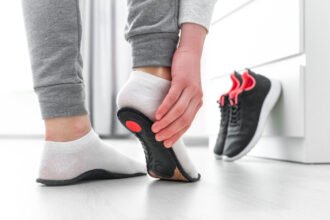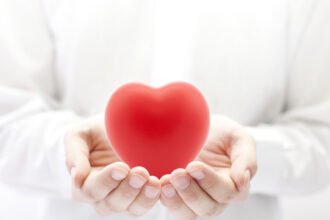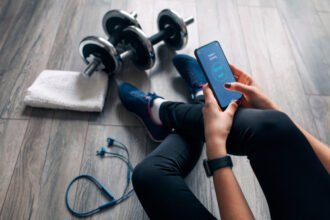Imagine a scenario where someone near you suddenly collapses and stops breathing. This can happen at the bus station, your workplace, or even your home. In such an event, do you really know what’s going on? More importantly, do you know that your actions within the next few minutes could make the difference between life and death, for the victim?Chances are that the person has gone into cardiac arrest, a dangerous condition to be in. However, the person can be brought back to wellness if you act quickly and perform CPR on them.
CPR stands for cardiopulmonary resuscitation and is a life-saving emergency procedure performed to keep the victim’s brain functioning until further medical assistance is available. It is performed on people who are unresponsive with no breathing. Most people who suffer cardiac arrest do not get CPR, which greatly reduces their chances of survival. Getting CPR training could help you save a life someday. If you’re thinking about it, here are the top 5 reasons to learn CPR:
1. CPR Saves Lives
More than 300,000 people suffer from cardiac arrests in the United States each year. In the event of a cardiac arrest, a person might suddenly collapse, lose consciousness and stop breathing. Cardiac arrest is caused by a problem in the heart’s electrical rhythm after which it is unable to effectively pump blood to the rest of the body. The first few minutes after cardiac arrest are critical. A person’s brain will cease to function 4 to 6 minutes after the heart stops beating. What’s more, it has been found that the chances of survival double if CPR is given within the first two minutes of cardiac arrest. Time is critical when it comes to performing CPR, and your training could genuinely save someone’s life. Given that most cardiac arrests occur outside the hospital, it very well could be someone you love.
2. CPR Awareness is Low
Less than 50% of out-of-hospital cardiac arrest victims receive bystander CPR. In fact, national statistics show that only 15 to 30 percent of out-of-hospital cardiac arrest victims receive bystander CPR. This should tell you something about the level of awareness and preparedness there is among people in the event of a cardiac emergency. Many people are simply at a loss on what to do if someone near them suddenly collapses. Not enough people receive CPR training, which results in people not doing anything at all. Some other reasons why people choose not to administer CPR on cardiac arrest victims include:
- Harm to themselves
- Legal risks and repercussions due to wrong CPR technique
- Causing harm to the victim
- Concerns relating to infection
Of course, these concerns disappear once you get proper CPR knowledge and training.
3. CPR Is Easy to Learn
CPR is not a technical medical procedure and you don’t have to be a doctor to perform it. It’s a basic set of hand movements with some mouth-to-mouth (if you’re comfortable). In fact, we can outline all you need to do for hands-only CPR as follows:
- Place the heel of your hand on the center of the patient’s chest
- Place your other hand on top of the first, interlacing your fingers
- Press down on the chest about two inches and release
- You have to repeat this quickly, at about 100 compressions a minute
Continue doing this at the same rate (100 compressions per minute) until emergency services arrive at the scene. You may have to do this for an extended period of time. This can be tiring so be sure to have another person to take over as you rest. Studies have found that patients may have a better chance at survival if CPR is continued up to 38 minutes or longer. Formal CPR training is easily available at accredited institutes throughout the United States. You can also gain knowledge by viewing online videos. We fully recommend taking formal CPR training from an accredited institute as it’s a life-saving procedure and should not be performed by untrained hands.
4. Mouth-to-mouth Resuscitation isn’t Necessary
One of the main reasons why bystanders choose not to administer CPR is the hesitancy to perform mouth-to-mouth. Of course, giving mouth-to-mouth to a stranger might be too much for some people. Some are also concerned with the health risks involved in mouth-to-mouth. The good news is mouth-to-mouth resuscitation is not necessary for people who don’t feel comfortable doing it. Back in 2010 the guidelines for CPR were changed, with revised guidelines saying that people who have no formal training, or those who do not feel comfortable, should attempt hands-only CPR. Hands-only CPR has been shown to be just as effective for many adult patients of cardiac arrest.
5. You Could Save Someone You Love
Most cardiac arrests happen outside the hospital. In fact, about 70% of cardiac arrests occur at the patient’s home. Which means that the only person near your loved one would either be you or a family member. This is why there is a growing movement, led by the American Heart Association, to push for CPR training in schools. Of course, the earlier you learn CPR the better it is. Learning CPR can be an empowering experience, as you’ll be confident in knowing that if someone around you needs this life-saving procedure, you’ll be ready. Learning CPR should be essential for everyone, given the severity of cardiac arrests and the frequency with which they occur. And don’t be put off by the prospect that you’ll have to undergo “training.” CPR classes are hands-on and interactive, and are usually given by supportive personnel. There’s nothing academic about it, and you’ll definitely have fun while learning this life-saving procedure. In fact, the tempo at which you should give chest compressions is similar to classic songs such as Bee Gees’ “Stayin’ Alive” and The Bangles’ “Walk Like an Egyptian.”ConclusionIf you don’t know CPR, we would highly advise that you learn it and even share this knowledge with your family, friends and colleagues.









